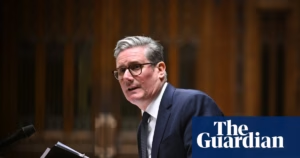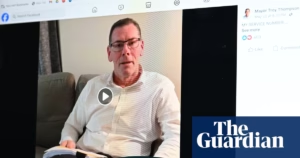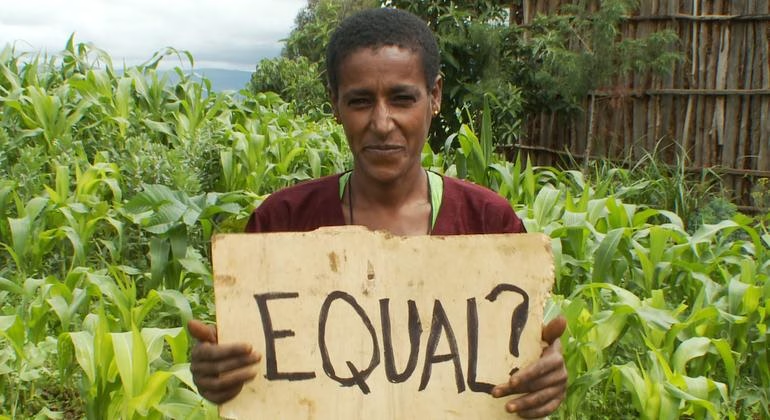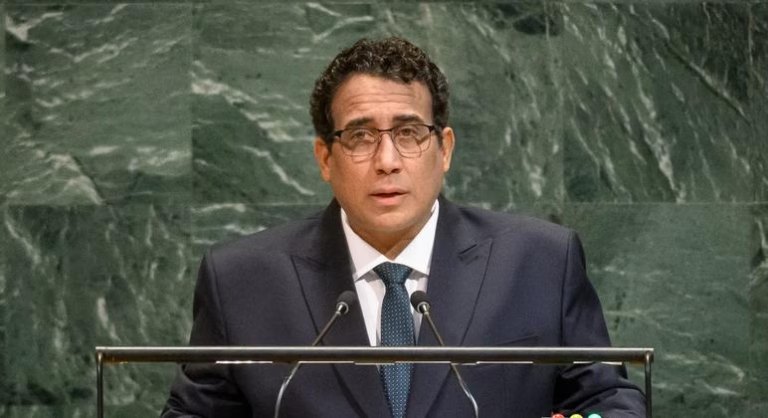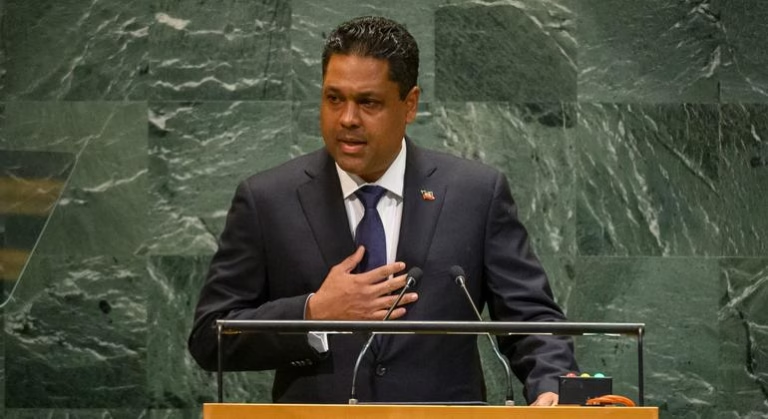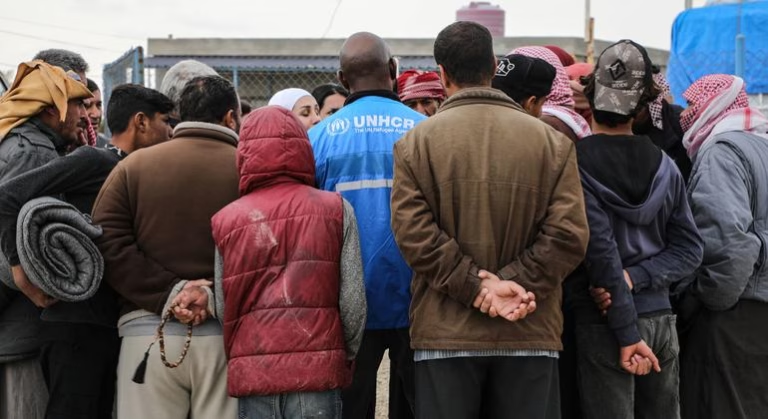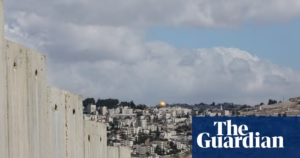The pressing urgency underscores a universal truth – the risk of the UN becoming obsolete in the wake of today’s polycrisis, ranging from blatant disregard for international norms to perpetual conflicts, devastating climate catastrophes, and an overwhelming debt burden.
African leaders anchored their petitions in their personal experiences, outlining unyielding struggles with fragile economies, recurrent droughts, a burgeoning youth population without opportunities, and the enduring power imbalance within international entities.
On Thursday, the consensus was unequivocal: without overhaul, the promise embedded in the UN Charter remains unfulfilled, and a feeble United Nations cannot serve “We the peoples.”
Guinea-Bissau: Embracing Equality

President Úmaro Sissoco Embaló of Guinea-Bissau addresses the general debate at the General Assembly’s 80th session.
President Umaro Sissoco Embaló of Guinea-Bissau highlighted the UN’s unique station as the singular platform where all nations, whether major powers or minor, can communicate as equals.
He painted a world fraught with conflict, disparity, and stagnant development. He noted that UN agencies — from UN Children’s Fund (UNICEF) to the World Food Programme (WFP) — sustain hope and dignity but falter without structural reform.
He advocated for the Security Council to be enlarged, made more democratic, and to genuinely represent the Global South. He argued that eroding faith in multilateralism can only rekindle through the active contribution of developing nations in decision-making processes. In his own words:
“The legitimacy, robustness, and future of the UN hinge on the inclusion and complete involvement of us all in discussions and decision-making.”
The Gambia: Taking Responsibilities Seriously

Vice President Muhammed Jallow of The Gambia addresses the General Assembly’s 80th session.
From West Africa, Vice President Muhammed Jallow emphasized The Gambia’s commitment to inclusive growth, peace, and the preservation of fundamental freedoms.
He drew attention to the Global South’s vulnerability to external shocks, from food and energy crises to mounting debt and high unemployment. He called for resilient international partnerships in food security, infrastructure development, and the execution of Sustainable Development Goals (SDGs).
Regarding the preservation of global peace and security, he stressed: “We invite the UN Security Council to honor its duty by addressing the unrest in Africa and everywhere else.”
Ethiopia: The Quest for Authentic Justice

President Taye Atskeselassie Amde of Ethiopia addresses the General Assembly’s 80th session.
Ethiopia’s President Taye Atskeselassie Amde strongly advocated for reform. He stated that the UN must overcome “systemic problems” including impartiality deficits, selectivity, and double standards.
He warned that military advancements, isolationist trends, and retreats from development and environmental commitments pose worldwide threats that undermine harmony between nations.
While Ethiopia has seen significant national advancements, Mr. Amde cautioned that these cannot cover up systemic hurdles, including overwhelming debt, coercive trade tactics, and Africa’s absence in Security Council decision-making processes.
“There is no fast solution or half-step in this enduring quest for justice,” he declared, urging for debt cancellation and Africa’s complete involvement in global governance.
South Sudan: Unity for Strength

Vice President Josephine Joseph Lagu of South Sudan addresses the General Assembly’s 80th session.
Vice President Josephine Joseph Lagu articulated her stance as representing a young nation still battling internal frailty.
She posited South Sudan’s challenges within the broader shortfall of the global community to help in post-conflict recovery, emphasizing the need for peace, humanitarian aid, and space for institutional growth without undue interference.
She pleaded for a more robust commitment to African-led solutions, arguing that the credibility of the UN relies on supporting the most defenseless.
“We all recognize that unity is strength. It’s strength for us domestically, it’s strength on a global scale,” she said.
Botswana: Amplifying Africa’s Voice

President Duma Gideon Boko of Botswana addresses the General Assembly’s 80th session.
President Duma Gideon Boko of Botswana delivered an appeal built on both gratitude and urgent requests for action, honoring the UN’s foundational vision while emphasizing the ongoing inequalities faced by the continent.
He cited Botswana’s use of diamond wealth to fund schools and hospitals, highlighting the fragility of resource dependence and the need for global partnerships in renewable energy, technology, and sustainable agriculture. He warned that for semi-arid countries like Botswana, climate change is an immediate reality.
President Boko’s most emphatic plea pertained to UN reform: “Africa’s voice is not being heard.”
He demanded a permanent seat on the Security Council, contending that without it, the UN cannot claim to be truly universal.
Watch the address.
Source: https://news.un.org/feed/view/en/story/2025/09/1165961
